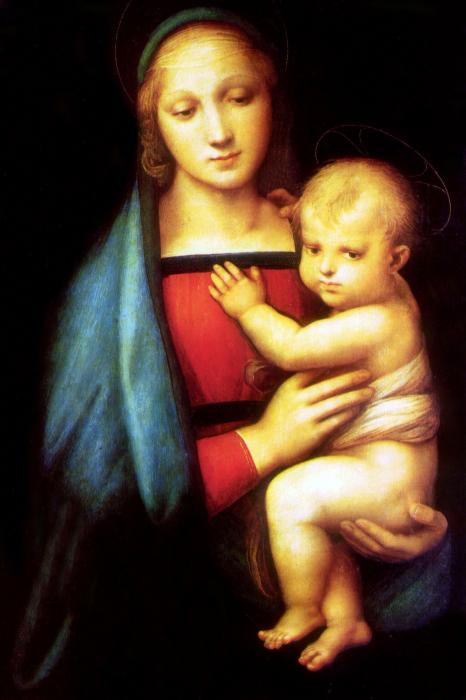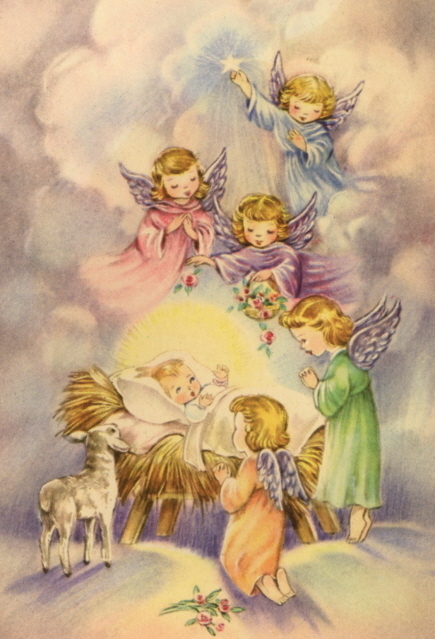Source(Goog;e.com.pk)
Jesus Baby Biography
Jesus of Nazareth (ca. 4 B.C.-A.D. 29), also known as Jesus Christ, was the central personality and founder of the Christian faith.
It is likely that Jesus was born not later than 4 B.C., the year of King Herod's death. Jesus' crucifixion was probably in A.D. 29 or 30. (The term Christ is actually a title, not a proper name; it comes from the Greek Christos, meaning the anointed one; in the Bible it is the Greek equivalent for the Hebrew word Messiah.) Information about Jesus is in some ways scant, in other ways plentiful. Although such ancient historians as Tacitus and Suetonius mention him, as does the Jewish Talmud, the only detailed information comes from the New Testament. There are a few other ancient accounts of Jesus' life, called Apocryphal Gospels because of their poor historical reliability; and in 1946 a Gospel of Thomas, actually a collection of sayings attributed to Jesus, was discovered in Upper Egypt. But none of these sources adds significantly to the New Testament. The letters of Paul are the earliest biblical records that tell about Jesus. But the four Gospels by Matthew, Mark, Luke, and John, although written later, used sources that in some cases go back very close to the time of Jesus.
Early Years
Jesus first came to general attention at the time of his baptism, just prior to his public ministry. He was known to those around him as a carpenter of Nazareth, a town in Galilee, and as the son of Joseph (John 6:42). Matthew and Luke report that Jesus was born in Bethlehem, a town near Jerusalem, famous in Jewish history as the city of David. They further report that he was miraculously born to the Virgin Mary, although they both curiously trace his Davidic ancestry through Joseph, to whom Mary was betrothed.
Little is known of Jesus' childhood and youth. But about the year A.D. 28 or 29 his life interacted with the career of John the Baptist, a stormy prophet-preacher who emerged from the wilderness and called on the people to repent and be baptized. A controversial character, he was soon jailed and killed by Herod Antipas, the puppet ruler of Galilee under the Roman Empire. Jesus heard John's preaching and joined the crowds for baptism in the Jordan River. Following his baptism Jesus went into the desert for prayer and meditation.
It is clear that Jesus had some consciousness of a divine calling, and in the desert he thought through its meaning. The Gospels report that he was tempted there by Satan as to what kind of leader Jesus would choose to be - a miracle worker, a benefactor who would bring people what they wanted, a king wielding great power. Jesus accepted a harder and less popular mission, that of the herald of the kingdom of God.
Galilean Ministry
Returning from the desert, Jesus began preaching and teaching in Galilee. His initial proclamation was similar to John's: "The time is fulfilled, and the kingdom of God is at hand; repent, and believe in the gospel" (Mark 1:15; Revised Standard Version). This message was both frightening and hopeful. It told people not to cling to the past, that God would overthrow old institutions and ways of life for a wonderful new future. This future would be especially welcomed by the poor, the powerless, the peacemakers. It would be threatening to the rich, the powerful, the cruel, and the unjust.
Jesus attracted 12 disciples to follow him. They were mainly fishermen and common workers. Of the 12 it seems that Peter, James, and John were closest to Jesus. Peter's home in Capernaum, a city on the Sea of Galilee, became a headquarters from which Jesus and the disciples moved out into the countryside. Sometimes he talked to large crowds. Then he might withdraw with the 12 to teach only them. Or he might go off by himself for long periods of prayer. On one occasion he sent out the disciples, two by two, to spread the message of God's kingdom.
The Miracles
The records concerning Jesus report many miracles. Through the years there have been great disagreements about these reports. For centuries most people in civilizations influenced by the Bible not only believed literally in the miracles but took them as proofs that Jesus had a supernatural power. Then, in an age of rationalism and skepticism, men often doubted the miracles and denounced the reports as fraudulent.
Today, partly because of psychosomatic medicine and therapy, people are more likely to believe in the possibilities of faith healing. The Bible candidly reports that on some occasions, when people had no faith, Jesus could do no mighty works. People were especially skeptical in his home-town, where they had known him as a boy (Mark 6:1-6). However, usually the Gospels report the healings as signs of the power of God and His coming kingdom.
Teachings of Jesus
Jesus taught people in small groups or large gatherings; his sayings are reported in friendly conversations or in arguments with those who challenged him. At times he made a particularly vivid comment in the midst of a dramatic incident.
The starting point of his message, as already noted, was the announcement of the coming of the kingdom of God. Since this kingdom was neither a geographical area nor a system of government, it might be better to translate the phrase as "God's reign."
The rest of Jesus' teaching followed from this message about the reign of God. At times he taught in stories or parables that described the kingdom or the behavior of people who acknowledged God's reign. Perhaps the most famous of his many parables are those of the Prodigal Son and the Good Samaritan. At times he pronounced ethical commandments detailing the demands upon men of a loving and righteous God. At times Jesus taught his disciples to pray: the words that he gave them in the Lord's Prayer are often used today.
Jesus' teaching was a subtle teaching, and often it was directed to the needs of a particular person in a specific time and place. Therefore almost any summary can be challenged by statements of Jesus that point in an opposite direction. One way to explore the dynamics of his teachings is to investigate some of its paradoxes. Five are worth mentioning here.
First, Jesus combined an utter trust in God with a brute realism about the world. On the one hand, he told men not to be anxious about life's problems, because God knows their needs and will look out for them. So if men trust God and seek His kingdom, God will look out for the rest of their needs. Yet, on the other hand, Jesus knew well that life can be tough and painful. He asked men to give up families and fortunes, to accept persecution out of faithfulness to him, thus promising them a hard life.
Second, Jesus taught both ethical rigor and forgiveness. He demanded of men more than any other prophet or teacher had asked. He criticized the sentimentalists who call him "Lord, Lord" but do not obey him, and he told men that, if they are to enter God's kingdom, their righteousness must exceed that of the scribes and Pharisees, who made exceedingly conscientious efforts to obey God's laws. He told men not to be angry or contemptuous with others, not to lust after women, and not to seek revenge but to love their enemies. Yet this same Jesus understood human weakness. He was known as a friend of sinners who warned men not to make judgments of others whom they consider sinful. He forgave men their sins and told about a God who seeks to save sinners.
Third, Jesus represented a kind of practicality that offends the overly spiritual-minded; but he also espoused an expectation of a future world (God's reign) that will make the attractions of this world unimportant. As a worldly man, he wanted to relieve hunger and sickness. He wanted no escape from responsibility into worship. He taught that sometimes a man would better leave church and go to undo the wrongs he has done.
But with this attention to the world was coupled the recognition that men are foolish to seek security and happiness in wealth or possessions. They would do better to give away their riches and to accept persecution. Jesus promised - or warned - that God's reign will reverse many of the values of this world.
Jesus Baby Biography
Jesus of Nazareth (ca. 4 B.C.-A.D. 29), also known as Jesus Christ, was the central personality and founder of the Christian faith.
It is likely that Jesus was born not later than 4 B.C., the year of King Herod's death. Jesus' crucifixion was probably in A.D. 29 or 30. (The term Christ is actually a title, not a proper name; it comes from the Greek Christos, meaning the anointed one; in the Bible it is the Greek equivalent for the Hebrew word Messiah.) Information about Jesus is in some ways scant, in other ways plentiful. Although such ancient historians as Tacitus and Suetonius mention him, as does the Jewish Talmud, the only detailed information comes from the New Testament. There are a few other ancient accounts of Jesus' life, called Apocryphal Gospels because of their poor historical reliability; and in 1946 a Gospel of Thomas, actually a collection of sayings attributed to Jesus, was discovered in Upper Egypt. But none of these sources adds significantly to the New Testament. The letters of Paul are the earliest biblical records that tell about Jesus. But the four Gospels by Matthew, Mark, Luke, and John, although written later, used sources that in some cases go back very close to the time of Jesus.
Early Years
Jesus first came to general attention at the time of his baptism, just prior to his public ministry. He was known to those around him as a carpenter of Nazareth, a town in Galilee, and as the son of Joseph (John 6:42). Matthew and Luke report that Jesus was born in Bethlehem, a town near Jerusalem, famous in Jewish history as the city of David. They further report that he was miraculously born to the Virgin Mary, although they both curiously trace his Davidic ancestry through Joseph, to whom Mary was betrothed.
Little is known of Jesus' childhood and youth. But about the year A.D. 28 or 29 his life interacted with the career of John the Baptist, a stormy prophet-preacher who emerged from the wilderness and called on the people to repent and be baptized. A controversial character, he was soon jailed and killed by Herod Antipas, the puppet ruler of Galilee under the Roman Empire. Jesus heard John's preaching and joined the crowds for baptism in the Jordan River. Following his baptism Jesus went into the desert for prayer and meditation.
It is clear that Jesus had some consciousness of a divine calling, and in the desert he thought through its meaning. The Gospels report that he was tempted there by Satan as to what kind of leader Jesus would choose to be - a miracle worker, a benefactor who would bring people what they wanted, a king wielding great power. Jesus accepted a harder and less popular mission, that of the herald of the kingdom of God.
Galilean Ministry
Returning from the desert, Jesus began preaching and teaching in Galilee. His initial proclamation was similar to John's: "The time is fulfilled, and the kingdom of God is at hand; repent, and believe in the gospel" (Mark 1:15; Revised Standard Version). This message was both frightening and hopeful. It told people not to cling to the past, that God would overthrow old institutions and ways of life for a wonderful new future. This future would be especially welcomed by the poor, the powerless, the peacemakers. It would be threatening to the rich, the powerful, the cruel, and the unjust.
Jesus attracted 12 disciples to follow him. They were mainly fishermen and common workers. Of the 12 it seems that Peter, James, and John were closest to Jesus. Peter's home in Capernaum, a city on the Sea of Galilee, became a headquarters from which Jesus and the disciples moved out into the countryside. Sometimes he talked to large crowds. Then he might withdraw with the 12 to teach only them. Or he might go off by himself for long periods of prayer. On one occasion he sent out the disciples, two by two, to spread the message of God's kingdom.
The Miracles
The records concerning Jesus report many miracles. Through the years there have been great disagreements about these reports. For centuries most people in civilizations influenced by the Bible not only believed literally in the miracles but took them as proofs that Jesus had a supernatural power. Then, in an age of rationalism and skepticism, men often doubted the miracles and denounced the reports as fraudulent.
Today, partly because of psychosomatic medicine and therapy, people are more likely to believe in the possibilities of faith healing. The Bible candidly reports that on some occasions, when people had no faith, Jesus could do no mighty works. People were especially skeptical in his home-town, where they had known him as a boy (Mark 6:1-6). However, usually the Gospels report the healings as signs of the power of God and His coming kingdom.
Teachings of Jesus
Jesus taught people in small groups or large gatherings; his sayings are reported in friendly conversations or in arguments with those who challenged him. At times he made a particularly vivid comment in the midst of a dramatic incident.
The starting point of his message, as already noted, was the announcement of the coming of the kingdom of God. Since this kingdom was neither a geographical area nor a system of government, it might be better to translate the phrase as "God's reign."
The rest of Jesus' teaching followed from this message about the reign of God. At times he taught in stories or parables that described the kingdom or the behavior of people who acknowledged God's reign. Perhaps the most famous of his many parables are those of the Prodigal Son and the Good Samaritan. At times he pronounced ethical commandments detailing the demands upon men of a loving and righteous God. At times Jesus taught his disciples to pray: the words that he gave them in the Lord's Prayer are often used today.
Jesus' teaching was a subtle teaching, and often it was directed to the needs of a particular person in a specific time and place. Therefore almost any summary can be challenged by statements of Jesus that point in an opposite direction. One way to explore the dynamics of his teachings is to investigate some of its paradoxes. Five are worth mentioning here.
First, Jesus combined an utter trust in God with a brute realism about the world. On the one hand, he told men not to be anxious about life's problems, because God knows their needs and will look out for them. So if men trust God and seek His kingdom, God will look out for the rest of their needs. Yet, on the other hand, Jesus knew well that life can be tough and painful. He asked men to give up families and fortunes, to accept persecution out of faithfulness to him, thus promising them a hard life.
Second, Jesus taught both ethical rigor and forgiveness. He demanded of men more than any other prophet or teacher had asked. He criticized the sentimentalists who call him "Lord, Lord" but do not obey him, and he told men that, if they are to enter God's kingdom, their righteousness must exceed that of the scribes and Pharisees, who made exceedingly conscientious efforts to obey God's laws. He told men not to be angry or contemptuous with others, not to lust after women, and not to seek revenge but to love their enemies. Yet this same Jesus understood human weakness. He was known as a friend of sinners who warned men not to make judgments of others whom they consider sinful. He forgave men their sins and told about a God who seeks to save sinners.
Third, Jesus represented a kind of practicality that offends the overly spiritual-minded; but he also espoused an expectation of a future world (God's reign) that will make the attractions of this world unimportant. As a worldly man, he wanted to relieve hunger and sickness. He wanted no escape from responsibility into worship. He taught that sometimes a man would better leave church and go to undo the wrongs he has done.
But with this attention to the world was coupled the recognition that men are foolish to seek security and happiness in wealth or possessions. They would do better to give away their riches and to accept persecution. Jesus promised - or warned - that God's reign will reverse many of the values of this world.
Jesus Baby


Jesus Baby


Jesus Baby


Jesus Baby


Jesus Baby


Jesus Baby


Jesus Baby


Jesus Baby


Jesus Baby



No comments:
Post a Comment